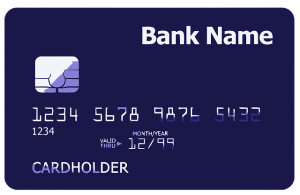
Credit cards are very convenient to have, especially when you’re short on cash. However, if you become too comfortable with using a credit card, it can be more of an issue than a convenience. If you’re thinking about whether or not to get a credit card, here’s a look at some of the advantages and disadvantages associated with owning one.
The Top Benefits that Come with Having a Credit Card
Build Your Credit
One of the easiest ways to start building your credit is by opening an account with a credit card company— although it isn’t always necessary. Still, this can be a great booster for your credit score. All you have to do is make sure that you pay off the full balance each month. This can be a manageable way to boost your credit score as long as you don’t put too much on your card that you’d have a hard time paying back.
Cheap Currency Conversion
When traveling abroad, you often have to exchange your currency, either at the airport before you depart or after you depart. This can be kind of a hassle, especially if you’re not sure about conversion rates. The good news is that many credit card companies will automatically do this conversion for you, so you don’t have to worry about converting your cash.
Hotels and Car Rentals
This is a given, as most hotels and car rental companies require a credit card as payment, versus a debit card or some other payment method. However, there are some hotels and car rental companies that allow you to pay with a debit card. Still, because these businesses place a hold on your account in case you’re charged any extra fees, it’s much more comforting for this hold to be on your credit card than on your debit card— which is tied directly to your bank account.
Rewards
Finally, the most obvious benefit of having a credit card is the rewards you can receive. Just about every credit card company offers some kind of reward, with cash back being the most common. For example, many companies offer 5% cash back on certain purchases, such as groceries, gas, home improvement, or restaurants and entertainment.
The Costs Associated with Having a Credit Card
Approval Requirements
Getting approved for a credit card isn’t always easy, and many companies have vague descriptions of their approval requirements. Generally, your approval is based on your income, any debt you may already have, and of course, your credit rating.
Fraud
Unlike your debit card that’s tied to your bank, you’re not insured for any unauthorized transactions that occur on your credit card. This is one of the reasons that many people choose to stay away from credit cards. Credit card companies allow you to dispute unauthorized charges, but this can be a hassle and it’s not guaranteed that all of your disputed charges will be resolved.
Interest Rates and Fees
The interest rates on credit cards are some of the highest rates you’ll see. The average credit card interest rate ranges anywhere from 18% to 22%— compared to an interest rate of 3% to 7% for car loans and mortgages. The good news is that you can choose a low rate credit card company to avoid interest rates on the higher end. Also, keep in mind that you can avoid credit card interest altogether by paying off your full balance each month.
Overspending and Debt
The biggest risk associated with getting a credit card is overspending and going into debt. It can be tempting to use your credit card over your debit card or cash because the money you spend isn’t being taken from you right away. Combine that with the many cash back rewards, a high credit limit, and the convenience of not always having to type in a PIN, then using your credit card daily becomes a lot easier.
Having a credit card comes with many benefits, but it’s also a huge responsibility. The first thing you should keep in mind when getting a credit card is to not spend beyond your means— no matter how higher your limit is. Your credit limit may not be equal to what’s actually in your bank account, so it’s best to save your credit card for emergency uses only. Credit card debt is one of the most common and costly debts in the U.S., so the decision to get one shouldn’t be taken lightly.




Leave a Reply